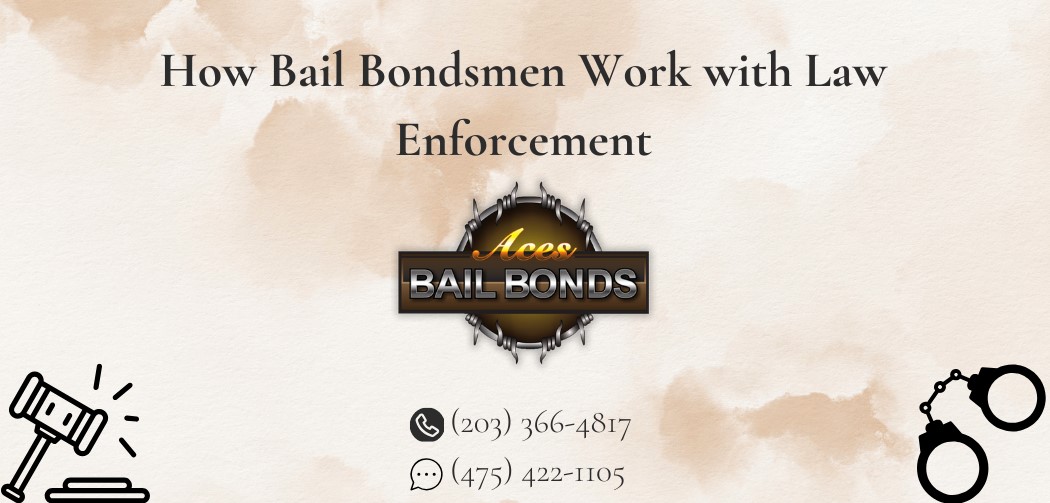How Bail Bondsmen Work with Law Enforcement
Bail bondsmen are an essential part of the criminal justice system. Most people know bail allows a defendant to stay free while awaiting trial. What many don’t know is how closely bail bondsmen and law enforcement work together.
This partnership protects communities, helps defendants appear in court, and supports the justice process. Here’s how Connecticut bail bondsmen team up with police, sheriffs, and federal agencies.
The Role of Bail Bondsmen
When a person is arrested, the court sets bail. If they can’t afford it, they may contact a bail bond company.
-
The bondsman posts bail for a fee.
-
A defendant or co-signer may provide collateral, such as property or cash.
-
The bondsman makes sure the defendant appears at all court hearings.
If the defendant skips bail, the bondsman—often with help from law enforcement—must find and return them to custody.
How Bail Bondsmen and Law Enforcement Work Together
1. Information Sharing
-
Databases: Police and bondsmen share addresses, records, and known associates.
-
Surveillance: Both may use stakeouts or GPS tracking.
-
Social Media: Online activity often provides leads on a fugitive’s location.
2. Fugitive Recovery
When defendants fail to appear, both sides have a duty to bring them back.
-
Joint Operations: Bondsmen, sometimes called bail enforcement agents, plan with police for safe recoveries.
-
Warrant Execution: Police carry out warrants, supported by information from bondsmen.
-
Safety Measures: Teamwork reduces risks during apprehension.
3. Legal Compliance
-
Licensing: In Connecticut, bail bondsmen must be licensed and regulated.
-
Oversight: Law enforcement checks that bondsmen follow the law and protect defendants’ rights.
-
Investigations: Misconduct or complaints can result in license suspension or revocation.
Real-World Examples
-
Fraud Fugitive: Bondsmen and police traced a defendant’s digital trail, leading to an arrest across state lines.
-
High-Risk Capture: A violent fugitive was safely arrested after a joint operation between a task force and bail bondsmen.
-
Cross-State Case: A drug trafficker fled Connecticut, but with FBI and DEA cooperation, bail bondsmen helped ensure capture and extradition.
Benefits of Working Together
-
Public Safety: Fugitives are caught faster, reducing community risk.
-
Accountability: Defendants know both bondsmen and law enforcement are monitoring them.
-
Lower Costs: Quick arrests save taxpayer money on long searches.
-
Better Resources: Bondsmen add specialized skills that support police work.
Challenges to Consider
-
Legal Boundaries: Bondsmen must always work within the law.
-
Training Needs: Both sides need ongoing training for safe, ethical operations.
-
Communication: Strong coordination ensures smooth and effective teamwork.
Conclusion
The partnership between bail bondsmen and law enforcement strengthens the justice system. By sharing information, coordinating fugitive recovery, and respecting the law, they protect the public and ensure defendants meet their court obligations.
At Aces Bail Bonds, we proudly work with Connecticut law enforcement to provide safe, professional, and reliable bail bond services.
📞 Call (203) 344-7483 for 24/7 Connecticut bail bonds.

